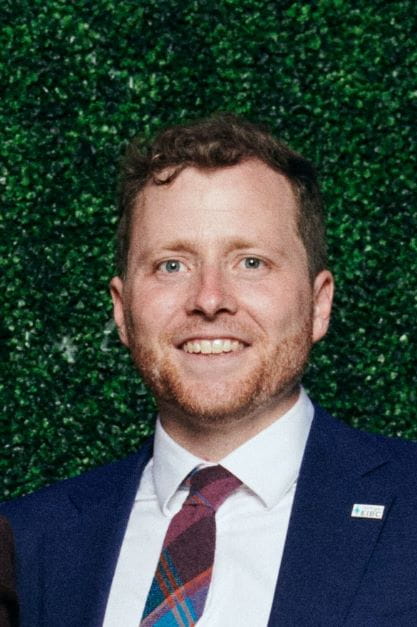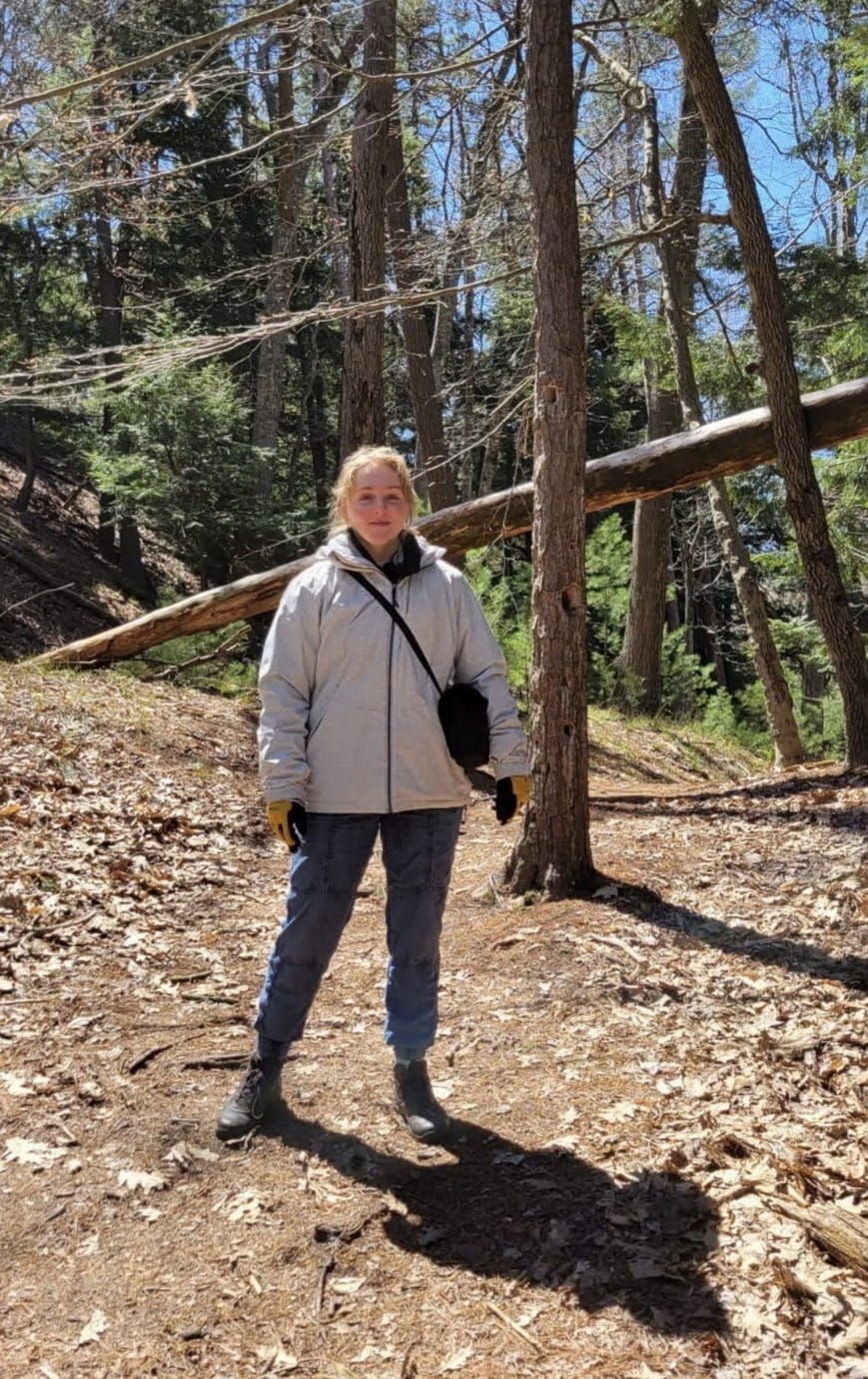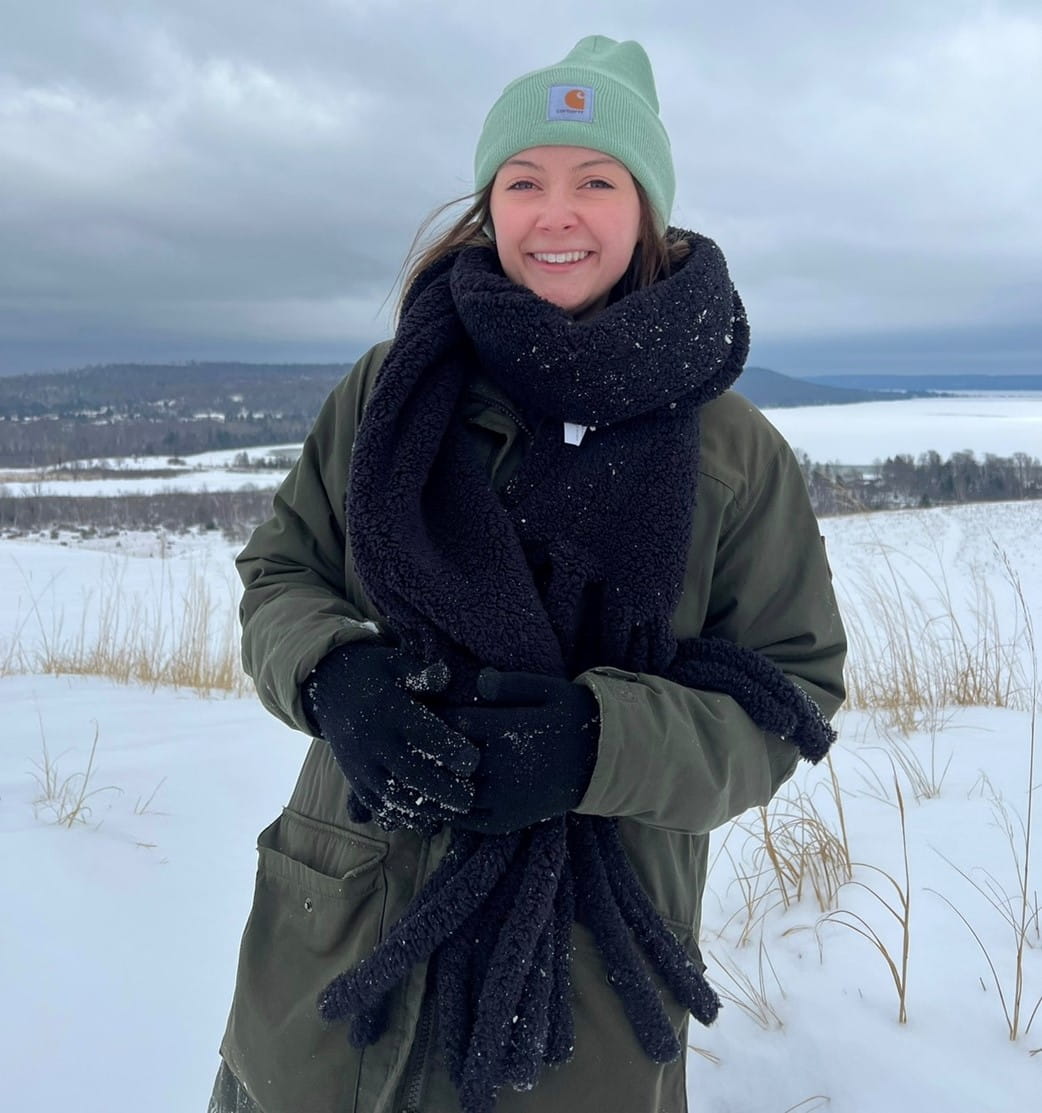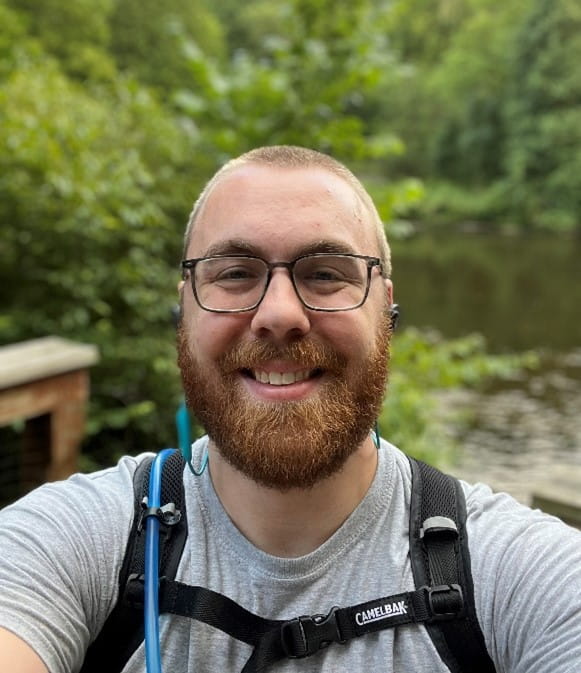The web Browser you are currently using is unsupported, and some features of this site may not work as intended. Please update to a modern browser such as Chrome, Firefox or Edge to experience all features Michigan.gov has to offer.
Team members focus on climate action in Michigan
June 27, 2023

Cory Connolly
The Office of Climate and Energy (OCE) in the Michigan Department of Environment, Great Lakes, and Energy (EGLE) guides climate action strategies and coordinates responses across state departments and agencies. It steers by the “north star” of Gov. Gretchen Whitmer’s MI Healthy Climate Plan, the roadmap to reducing greenhouse gas emissions and creating a healthy, prosperous, carbon-neutral future for all Michiganders.
We need everyone to tackle the climate crisis. There are plenty of things we can do to reduce the harms of climate change individually (here’s a list of 52 personal actions we put together for Earth Day 2022) but more importantly, we all need to act collectively.
I’m Cory Connolly, OCE’s climate and energy advisor. You can find more about me here, but today I want to introduce other members of the team devoted to OCE’s climate action mission and the implementation of the MI Healthy Climate Plan:

Climate Data Science Officer Sarah Hutchinson, pictured at the University of Michigan’s Matthaei Botanical Gardens, is responsible for most things data-related, including tracking implementation of the MI Healthy Climate Plan and developing out the state’s greenhouse gas inventory program. She performs internal State of Michigan coordination to find data and information sources to support these efforts and loves seeing how different parts of EGLE collaborate.
Why I do it: I’ve always had a deep appreciation for the Michigan environment and wildlife around me. Seeing birds make nests and raccoon and opossum families walk through my backyard helped me realize early that where we live isn’t just our home but everyone’s home, and it’s our responsibility to take care of it. I took an extreme weather course on a whim in college to learn more about how our planet and atmosphere works and how humans affect it.
How I got here: I’ve worked on climate issues for basically my entire career. One of my first climate-related jobs was as a student research assistant at Great Lakes Integrated Sciences and Assessments (GLISA) doing work like analyzing climate models and researching freeze-thaw cycles in the Great Lakes region. I also became interested in more applied climate work, working at the U.S. Environmental Protection Agency (EPA), integrating electric vehicles into emissions simulations and modeling idling emissions for heavy-duty vehicles before joining OCE.
Accomplishments and challenges: One of Michigan’s biggest accomplishments has been becoming a member of the U.S. Climate Alliance and being able to connect with other climate-minded states and share resources and information. I’m excited to see how this relationship develops. One key challenge that often flies under the radar is how many people don’t realize they’re doing climate work. Nearly every profession can be tied back to having impacts on our climate. Realizing that is important to making progress together as Michiganders.
Why it matters: Climate action in Michigan extends so much farther than just Michigan. Every bit of emissions reduction here benefits people across the country and around the world. Climate change is global and requires all kinds of solutions, and there’s no better place to start than at home.

Intern Sailor Mayes hunts mushrooms and hikes in Ludington State Park, identifying insects along the way. She’s worked to simplify staff projects for ease of use, create presentations, and investigate and contact companies around Michigan to identify key climate actions.
Why I do it: I have been interested in climate issues since high school. I have been an avid recycler, I thrift almost everything I wear or own, I educate the public on how climate change harms native wildlife, and I promote biodiversity. I am excited to help mitigate the negative effects of climate change in my home state of Michigan. What sparked my interest was seeing pollution, erosion, and plastic trash everywhere I walked around my vacation home in Beulah. Although that is not directly related to climate change, it is still a negative effect humans have on our beautiful planet.
A personal connection: My biggest accomplishment is creating a bioswale and rain garden at Wayne State University. Working with the Detroit Biodiversity Network and planting native plants within these areas have increased campus biodiversity. This was particularly rewarding as I felt my hands in the soil. This earth-to-hand feeling really solidified my love for our planet and made me understand this is what I need to continue to do. I feel justified saying I was brought onto the planet to help the environment.
Why it matters: Michigan holds 21% of the world’s surface fresh water. We are an extremely important state when it comes to watersheds, biodiversity, materials, and life. It is essential that we mitigate the effects of climate change to the best of our ability, not to save ourselves but to save the life that grows around us that we so often forget about.

Intern Haley Neuenfeldt, shown climbing the snowy Sleeping Bear Dunes in Glen Arbor, supports development of the implementation strategy for the EPA’s Greenhouse Gas Reduction Fund.
How I got here: I’ve been interested in working on climate issues since I studied geography and global studies at the University of Richmond in Virginia. I learned about climate change through experiences focused on urban agriculture, the coffee industry, renewable energy development, and urban air quality. In my time as a Peace Corps volunteer in Zambia, I realized how all-encompassing climate change impacts are on the lives of so many, especially those with the least power to adapt. This prompted me to pursue a career focused on equitable climate policy. I’m pursuing master’s degrees in public policy and environmental policy and planning from the University of Michigan and will graduate in 2024.
A Michigan climate success: Environmental justice has been a critical push for federal and state policy. While there is a long way to go, it is at the forefront of almost all current climate legislation. It’s encouraging to see financial support to address existing socioenvironmental disparities and mitigate potential new ones.
Why it matters: Climate change has pervasive impacts across Michigan: decreased crop yields, algae outbreaks in the Great Lakes, stronger and more frequent extreme weather, increased urban heat island effects, and many more direct and indirect impacts to industries and individuals. Everyone stands to gain from prompt climate policy that mitigates these impacts, invests in equitable local economic development, and addresses various socioeconomic issues.

Climate Action Officer Zach Richardson, pictured biking the White Pine Trail, works with other state government agencies, local and tribal governments, universities, and nonprofits for climate action statewide, coordinating around shared priorities like planning and designing the MI Healthy Climate Corps program. He also helps the Office of Legislative Affairs assess how proposed climate and energy legislation align with the MI Healthy Climate Plan.
Why I do it: I've always had a passion for wildlife and nature. Growing up, I spent time camping in Hoosier National Forest in Indiana, running trails and hiking through creeks to look for fossils and geodes. I went to Purdue University to become an engineer and happened to take two courses – in global green politics and international environmental policy – during the 2016 U.S. election cycle and amid Brexit and the U.S. withdrawal from the Paris Agreement on climate change. So, I was getting introduced to environmental policy when some major shakeups were going on.
How I got here: I joined a research lab focused on lowering flood risk, interned with Duke Energy after graduating from Purdue, and studied environmental policy and natural resource management in graduate school at Indiana University. I worked part-time at IU's Environmental Resilience Institute, helping cities, towns, and counties lower greenhouse gas emissions and resist the impacts of climate change. And now I'm here in Michigan, continuing my quest to make the world a healthy and sustainable place for everyone.
As I see it: I think the greatest challenge we face now in climate work isn't denial, it's apathy. I worry when I hear of people acting as though all is already lost. It isn't, and every fraction of a degree matters. We have the technological tools we need to meet the goals of the Paris Agreement. The only obstacle is the collective will to make it happen, and I see that as a challenge that we can overcome together.
I am excited about the MI Healthy Climate Corps program. This two-year pilot will support communities that are ready to work on climate change but don't have staff capacity. Local and tribal governments will host AmeriCorps volunteers to start on their priority projects. This program gives me hope, because fixing the climate crisis is going to look like a bunch of small solutions tailored to the needs of local communities. I am impressed by how communities find brilliant and creative ways to act on climate change while making their residents happier and healthier.
Why it matters: I occasionally hear climate change in the Great Lakes region framed in terms of the relative mildness of climate impacts compared with other places. While that may be true, I think it means we have a responsibility to be even bolder in our efforts to decarbonize and adapt, because the people who contribute least to the climate crisis are and will continue to be impacted first and worst.

Consultant Jamie Scripps supports the Council on Climate Solutions (CCS), implementation of the MI Healthy Climate Plan, and state pursuit of federal climate funds, including the EPA’s Climate Pollution Reduction Grants and Greenhouse Gas Reduction Fund. Her specialization is energy policy and industrial decarbonization.
How I got here: I have worked on clean energy policy since 2007 at the Michigan Environmental Council (MEC) in the lead-up to passage of Michigan’s first renewable energy standard in 2008. As a University of Michigan law student, I took an environmental law course and joined the environmental law practice group at Washington, D.C., law firm Venable LLP as a junior associate right out of law school. I moved back to Michigan and applied my legal training to policy, first at the MEC and then for Michigan in what was then the Department of Energy, Labor and Economic Growth. More recently, I served as senior associate for Midwest climate policy for the U.S. Climate Alliance and joined EGLE in early 2021.
Michigan climate success: At EGLE, I was able to support the earliest days of the CCS and development of the MI Healthy Climate Plan. Harnessing a diverse array of stakeholders during the council’s working group process was a major undertaking that led to an ambitious plan everyone in OCE was proud of. The MI Healthy Climate Conference in April was an important inflection point, highlighting progress and the importance and magnitude of the work ahead.
Why it matters: Michigan is home to a legacy in manufacturing, particularly automotive. As the world increasingly looks to electric vehicles as part of decarbonizing transportation, our state is well-positioned to lead. We are also home to major electric utilities with their own climate action goals, and power on our electric grid gets cleaner by the day as renewable energy and storage technologies are deployed throughout the Upper and Lower Peninsulas. Future partnerships with private industry and Michigan higher education will spur and enable sustained climate action in ways that lower costs and improve quality of life for all Michiganders.